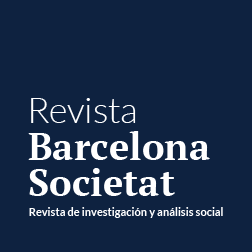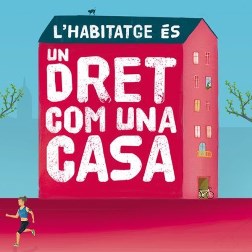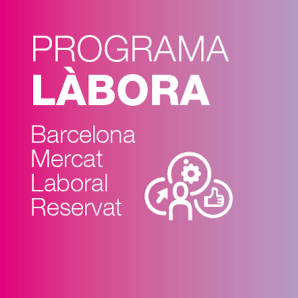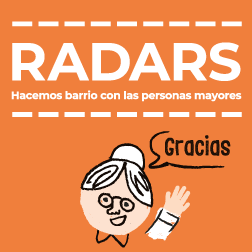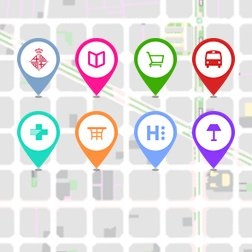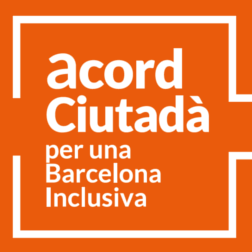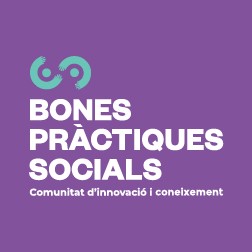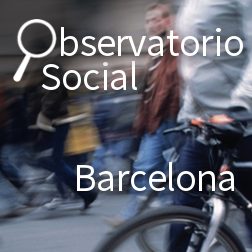Barcelona, a pioneering city in municipal care services with over 16,000 people assisted
04/11/2022 - 14:59
Specific public services linked to care work have grown considerably in number in the city over the last few years, with pioneering and consolidated projects such as Espai Barcelona Cuida, the Concilia child-minder service, the Vila Veïna area deployment and the creation of the Targeta Cuidadora. More than 16,400 people have already benefited from this set of resources, which received an investment of 187 million euros in 2021 and will continue to be extended with further initiatives to guarantee the right to receiving and providing care in a dignified way and with community support networks.
Everyone receives care and cares for others throughout life, according to age, health and well-being. Care work has been traditionally seen as a private social duty, reserved in the confines of the home and associated with women’s responsibilities. There are estimated to be 355,000 people in Barcelona, mostly women, providing others with intensive care, with a notable proportion of such carers being migrant women and in a situation of job insecurity.
Feminisation of care work
The feminisation of care work represents an overload for women performing this vital work for keeping society afloat. 95% care and domestic workers are women, with a deficient level of well-being: 65% state they have average or poor health. As for employment conditions, the gender wage gap reaches up to 17.5%: more than 43% could not be financially independent on their income alone.
To change these dynamics, we need to adopt a change of model that understands care work as a shared duty and community responsibility, which is performed locally, with a feminist and universal vision, so that no one has to care for others on their own.
Pioneering care-related services
Combating the feminization of care work starts with the creation of support networks and public resources that improve the quality of life not just of carers but also of the people receiving care. Several pioneering projects, aimed at these groups, have been launched since 2015 and expanded and consolidated year after year as benchmark services in the field of care.
Barcelona Cares
The Barcelona Cuida [Barcelona Cares] space is a facility that centralises full information and resources relating to care work in the city. It first opened to the public in 2019, since when it has attended to 10,688 people, with 8,694 issues resolved. The service is especially important for domestic and care workers: 2,500 advisory consultations have been made in this area, some hundred employment contracts entered into and ten people given help to get their papers in order.
Barcelona Cuida is based in Carrer de Viladomat, 127, and can also be contacted by its telephone or online assistance helplines. It can assist individuals caring for family members or close friends, domestic professionals, social, community and health services, organisations and individuals who want to plan their care.
Carer Card
The Barcelona Cuida service also manages Targeta Cuidadora [carer cards], a recent initiative that recognises the work of carers and enables them to access a set of fourteen free resources, such as emotional counselling 24 hours a day, support networks and leisure activities. Some 2,300 applications have been received since its launch.
Find out all about how you can apply for a Targeta Cuidadora here.
Vila Veïna
The Vila Veïna project is the brainchild of an initiative for putting lives and care work at the centre. It establishes a local, personalised socio-healthcare model, with small area units where local residents have all the resources at their disposal for ensuring care both for those receiving it and from those providing it.
The pilot plan is already up and running in ten of the city’s neighbourhoods and has assisted 1,171 people, mainly women (84%). Half of its users identify themselves as carers, and the most frequent consultations have to do with dependency (32%) and young children (25%).
Concilia child-minding service
Balancing employment and personal life with leisure and breathing space is especially difficult for single-parent families with few resources, women in situations of gender violence and families without community support. To facilitate their balance, Concilia child-minding service was launched in 2020, managed by the Incoop cooperative, which already has nine spaces available and had assisted 2,456 families by July this year, with a total of 28,530 cases of child-minding.
The programme’s smooth running has enabled it to extend the service to a further three neighbourhoods: El Carmel, El Congrés i els Indians and La Maternitat i Sant Ramon. To make that possible, it has received a 145% increase in investment, up to 1.6 million euros.
A child monitoring service will also be created at the same time at the Assistance, Recovery and Shelter Service (SARA), and a project launched called Mares Veïnes, a support network for the children looked after by women and mothers from different backgrounds.
More services for improving care work
This set of resources is being joined by other municipal programmes, including Radars, Vincles and Baixem al carrer, which are aimed at improving the well-being and quality of life of especially vulnerable groups, such as the elderly and people with disabilities. These programmes are intended to combat unwanted loneliness and social isolation.
What’s more, extra investments also have been made in basic resources such as the Home Assistance Service (SAD), which increased its budget by 50% in 2019. The increase enabled the recruitment of more professionals into the service, an improvement in employment conditions and a reduction in temporary work, with a total of 4,025 people employed. Progress was also made in extending and improving the tele-assistance service, which now covers 108,000 people.
Other initiatives are complementing the series of municipal actions and resources, such as Barcelona Activa’s specific advisory service in the realm of care work; the incorporation of a clause as a contract-awarding criterion for public contracts which reduces part-time employment of women in precarious work situations; training in work-personal life balancing for 832 individuals and professional skills-acquisition training for 130 carers; and strengthening of the Carer Families programme and mutual-help groups.









